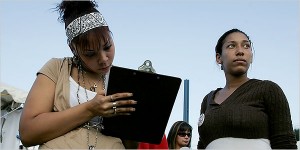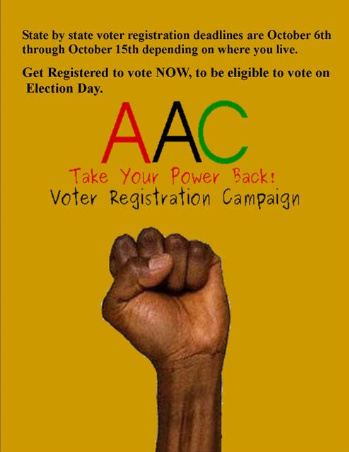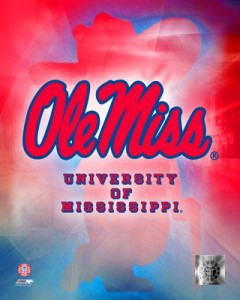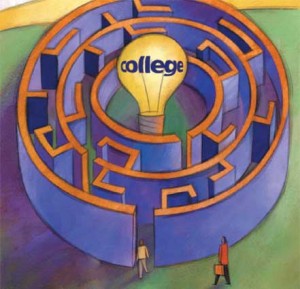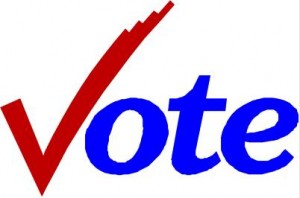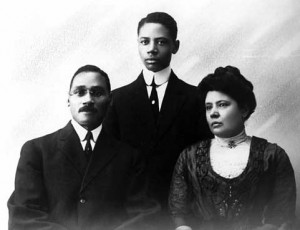
Charles Hamilton Houston and his parents, William LaPre and Mary Ethel Houston. Houston’s father was an attorney. His mother was a college-educated teacher.
(Source: Blight, David. The Journal of Blacks in Higher Education, No. 34 [Winter, 2001-2002], pp. 10)
The Garvey movement was a black man’s dream; and for all its bombastic phantasmagoria of a visionary African empire, it made a permanent contribution in teaching the simple dignity of being black. Prior to Marcus Garvey all Negro teaching had been to be like the “good white folks” and not make too much noise. Madam Walker had made a million dollars making bleaches and straightening hair. But Marcus Garvey, the black Negro from Jamaica, founded himself an imaginary empire, surrounded himself with black dukes and black duchesses, gathered himself a black army and a green cross corps of black nurses, actually sent black men out to sea in command of ocean-going vessels, and paraded in the sun claiming his black skin as his proud birthright and distinction. For my purposes it is immaterial whether he was charlatan or fool, Marcus Garvey by turning the Negro’s attention to the beauty of the color of his own skin, has had a profound influence on Negro thought.
–Charles Hamilton Houston, “An Approach to Better Race Relations,” National YWCA Convention, Philadelphia, May 5, 1934
***
Biography and Notes: My last blogpost featured a quote from Harvard Law Professor Randall Kennedy that is critical of what he perceives as an anxiety of authenticity on the part of Black Harvard Law School students and alums. In the featured quote (from Kennedy’s Sellout, his most recent book), he links this apparent fear of being not Black enough/not connected to community enough/forgetting “where you came from” to the writings and speeches of Charles Hamilton Houston.
Professor Kennedy is especially interested in those instances when the pressure among Black professionals to remember “where you came from” and “stay black” becomes the basis for ostracizing those African Americans whose interests and ideas fall outside of the range of activities and concerns that one might consider to be acceptably Black. This is relatively recent phenomenon (which really gained momentum during the late 1960s) and it represents a misreading and misuse of Houston’s ideas.
Charles Hamilton Houston’s life is a testament to the power that an African American attorney can have when he or she commits himself to social change in and for the Black community.
Born in 1895, Houston was the valedictorian of his graduating class at Amherst College (his was one of six valedictorians for the class of 1915). A cum laude graduate of Harvard Law School, a former Dean of the Howard University Law School, and a history-making civil rights lawyer, he believed deeply in the need for and the responsibility of African American lawyers to aid Black communities in dismantling Jim Crow segregation and the local and regional obstacles that it placed in the path to freedom.
Houston entered Harvard Law school in 1919, after serving as an Army officer in World War I. At Harvard he became the first Black editor of the law review. He graduated in the top five percent of his class, earning his LL.B. with honors. He continued his legal studies at the University of Madrid and went on to earn his J.D.
Houston joined the faculty of the Howard University Law School in 1924. The website of the Charles Houston Bar Association describes his impact there:
Charles Houston joined the faculty at Howard Law School in 1924, and soon ascended to become its vice-dean (1929-35). During his tenure, Mr. Houston sculpted the institution into a legal powerhouse, training almost a quarter of America’s Black law students. By 1931, the full-time legal program he instituted had received accreditation from both the American Bar Association and the Association of American Law Schools. The success of his law school program is evident from the work and accomplishments of the great legal minds it produced. Mr. Houston was a teacher and mentor to many of the great civil rights defenders of the 20th Century. These celebrated figures include Thurgood Marshall, the first African American U.S. Supreme Court Justice.
As an attorney, Houston argued a number of cases before the Supreme Court, focusing his energies primarily on those that could hasten the demise of Jim Crow segregation. Houston’s most influential tactic in these cases was his emphasis on the failure of segregated jurisdictions to adhere to the letter of the law as defined in Plessy vs. Ferguson, which allowed racial segregation as long that the racially designated facilities were equal. Houston’s emphasis on the failure of segregated jurisdictions to abide by the “separate but equal” provision was instrumental in the history-changing Brown vs. Board decision.
Unfortunately, Houston would die before his most famous student, Thurgood Marshall, won that landmark case. Charles Hamilton Houston died on August 22, 1950. Five Supreme Court justices attended his funeral. Four years later, Thurgood Marshall would build on the work of his late mentor, successfully arguing the case that would end school segregation throughout the U.S.
Posted by Ajuan Mance
